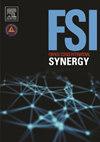Decolonising forensic odontology in Sub-Saharan Africa
Q1 Social Sciences
引用次数: 0
Abstract
Forensic odontology plays a vital role in human identification, age estimation, and legal investigations. However, in Sub-Saharan Africa, the field has developed within a framework shaped by colonial histories, Western methodologies, and systemic underinvestment in local capacity. This article critically examines the need to decolonise forensic odontology in the region, proposing a comprehensive reform agenda grounded in four intersecting domains: historical legacies, indigenous knowledge integration, ethical considerations, and policy reform. It highlights how colonial-era forensic practices continue to influence current protocols and legal standards, often to the detriment of scientific accuracy and justice. By recognising and incorporating traditional dental knowledge, such as ritual dental modifications and community oral histories, the field can be enriched and made more contextually relevant. Ethical challenges surrounding data sovereignty, informed consent, cultural sensitivity, and the use of contested techniques are addressed, with recommendations for more equitable and transparent forensic practices. Policy reforms are proposed to institutionalise forensic odontology through education, infrastructure development, legal recognition, and collaborative networks. The article argues that decolonisation is not a rejection of global science but a reorientation toward context-appropriate, ethically grounded, and locally led forensic systems. Through these reforms, Sub-Saharan Africa can build a forensic odontology discipline that is scientifically robust, culturally responsive, and capable of delivering justice and dignity to affected communities.
撒哈拉以南非洲法医牙科学的非殖民化
法医牙医学在人类鉴定、年龄估计和法律调查中起着至关重要的作用。然而,在撒哈拉以南非洲,该领域是在殖民历史、西方方法和对当地能力的系统性投资不足形成的框架内发展起来的。本文批判性地考察了该地区法医牙科学非殖民化的必要性,提出了一个基于四个交叉领域的全面改革议程:历史遗产、本土知识整合、伦理考虑和政策改革。它强调了殖民时代的法医做法如何继续影响现行的议定书和法律标准,往往损害科学的准确性和正义。通过承认和纳入传统的牙科知识,如仪式牙科修饰和社区口述历史,可以丰富该领域并使其更具上下文相关性。讨论了围绕数据主权、知情同意、文化敏感性和有争议技术使用的伦理挑战,并提出了更公平和透明的法医实践建议。建议进行政策改革,通过教育、基础设施发展、法律承认和合作网络使法医牙科学制度化。这篇文章认为,非殖民化不是对全球科学的拒绝,而是对适合环境的、有道德基础的、由地方主导的法医系统的重新定位。通过这些改革,撒哈拉以南非洲可以建立一个科学上健全、对文化有反应、能够为受影响社区带来正义和尊严的法医牙科学学科。
本文章由计算机程序翻译,如有差异,请以英文原文为准。
求助全文
约1分钟内获得全文
求助全文
来源期刊

Forensic Science International: Synergy
Social Sciences-Law
CiteScore
4.90
自引率
0.00%
发文量
75
审稿时长
90 days
 求助内容:
求助内容: 应助结果提醒方式:
应助结果提醒方式:


